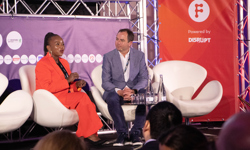There’s no such thing as an intelligent reader
The impeccably-groomed French gentleman whose job it was to oversee all the various overseas editions of Elle once said to me, in tones of Gallic exasperation, “why do the British always talk about their readers being intelligent?”
He’d been sitting in on an editorial development session during which the editorial team working on the UK version kept harping on about the fact that the Elle reader was more intelligent than the reader of whatever the competitor was at the time. The fact that he was prepared to confront this essentially British snobbery led to an interesting discussion. The French editor, he said, was quite happy describing her readers as more sophisticated, wealthier, quicker to adopt new things or even more self-indulgent but she was at a loss to see what you could possibly gain by characterising them as being more intelligent than anyone else.
I’ve thought about that conversation many times since. The intelligence fallacy runs through British publishing. It’s a commonplace to describe, say, Guardian readers as more intelligent than, say, readers of The Sun. Think about it. This simply can’t be true. If that were true, it would mean that Guardian readers would be far less likely to buy clothes that were too small for them just because they were in the sales. It would mean their shoes never pinched. It would mean that Sun readers were always locking their keys inside their cars, a predicament from which they were having to be released by Guardian-reading knights of the road. It would mean that no Guardian reader’s ceiling was ever destroyed by overflowing bathwater from the floor above whereas Sun readers lived in a state of permanent domestic chaos. There’s a lot of talk about inequality nowadays, much of which I don’t understand. One thing I do know is that human stupidity is distributed fairly and evenly without any reference to income level or educational attainment.
Does this prejudice matter in publishing? Only insofar as the “our readers are more intelligent” debate is usually a front for an internal argument about policy and the kind of material the person advancing it wishes to produce, an argument which usually results in an undervaluing of the simple, mundane things which, in our child-like way, we find amusing. I was reminded of this recently when talking to someone who’d spent five years producing audio-visual digital materials for one of Britain’s most prestigious media brands. What had he found in that time about the stuff that the readers liked? Was it the high-toned stuff that wins awards? Or was it the stupid stuff? It was, he said, the stupid stuff every time.
Take it from me. It never helps to talk about the intelligent reader.
Are you in sync?
What about the intelligent publisher? At the Independent Publishers Conference held by the PPA at the end of last year, the delegates were asked how many of them were focusing their innovation on video. The answer came back: none of them.
While the cost of video and the reluctance of ink and paper people to get involved with a medium that seems to spend so much energy on editing suites is in one way understandable, you have to ask yourself whether it’s possible that we might look back and wonder whether the people running these firms had lost their minds, whether they might have let their understandable belief in running their companies prudently get in the way of making the big re-adjustments that might be called for to get in sync with the way the world is going.
You don’t have to have stars in your eyes to understand the importance of video. You just have to take note of the fact that young people now go to YouTube rather than the radio for music. You might find some clues in your own behaviour. If you have problems operating any device nowadays, you go to YouTube to look for a practical fix long before you would consult a manual. Our instinctive reaching out for a practical demonstration means that within the next five years, we will lose the ability to understand written instructions. These are profound changes in human behaviour and no matter how much you wish to make sure your company doesn’t throw good money after bad consultants, I would have thought it would be foolish to think you can ignore these shifts in the tectonic plates altogether.
The last word?
I know a certain amount about the First World War. I’ve read some books and spent time tramping round the sites of battles in France and Belgium. Until the recent anniversary, the story of the Christmas Day truce and its accompanying football match were seen as belonging to the world of apocrypha. Now the detail on the story has built up so much that the BBC was actually presenting programmes about the man who may have supplied the ball.
This echoed something I heard Atul Gawande say in his Reith Lectures. These days, he said, the amount of medical knowledge is growing at such a pace that it is no longer possible for any single doctor or surgeon to hold it in their heads. This, it seems to me, is a pretty profound cultural change. We have been raised to venerate people with lots of knowledge and to believe that they have the solution to our problems. Gawande’s argument is that we would be better off putting our faith in systems rather than simply assuming that people knew what they were doing.
The things that apply to medical knowledge must also apply in whatever field of interest you are publishing for. I’m working on a book about 1971 at the moment and every week I find that the available knowledge on even that subject has grown. You would have thought it all would have been done and dusted, closed and calculated some time ago. Not so. Not a week goes by that somebody doesn’t write a memoir, publish an old clip, release a record or pass on an anecdote, each of which changes the picture slightly. And what applies in one area applies in another. All knowledge is provisional. The idea of anything being “definitive” or “the last word” is just laughable.
You never can tell
Ten years ago, I was at a conference where the star speaker was Gary Hamel, the eminent academic and corporate teacup reader. He was talking up his book Leading The Revolution, which promoted the view that companies had to be prepared to turn their whole business model upside down in order to flourish in the new digital dispensation. Hamel was particularly fulsome in his praise of one company which had shaken up the US energy market by pushing the envelope so far that most people would have difficulty recognising it as an envelope at all. That company was Enron, just before its terrible fall from grace.
It turned out that the company was being kept alive by a massive campaign of plate spinning which skirted and often crossed the border between aggressive business practice and outright fraud. I’m sure Professor Hamel was more embarrassed than most when this news came out. But just as he couldn’t be expected to have known anything about their skullduggery, neither could he, in all honesty, be expected to know whether Enron were really doing as well as they liked to crack on. Just as you don’t know very much about the marriages of even your closest friends, so you really don’t know how well a company is doing from looking at it from the outside.
I’m certainly not suggesting that anyone within its organisation is up to funny business or that it is in any way built on sand but I have to wonder whether any of the people talking up Vice as the great white hope of the media world have the remotest idea how it actually makes its money. What I do know is that they’re so desperate for it to turn out to be the case that they wouldn’t be looking too hard for any evidence that contradicted that view.
And finally…
Every day, social media draws to my attention really interesting items published on newspaper or magazine websites that I really would like to read. Since nobody reads anything longer than 300 words on a screen unless it’s about themselves, I file these away to read later on Instapaper. Then what happens is that a lot of the time, I don’t get around to it. I don’t believe that Long Reads, as they’re always called, are self evidently a good thing. But when it comes to the end of the year, I do think it’s a shame that nobody can profitably publish some collection of the best pieces of the year in a form which I could take to enjoy reading on the train. Let’s say on paper.












